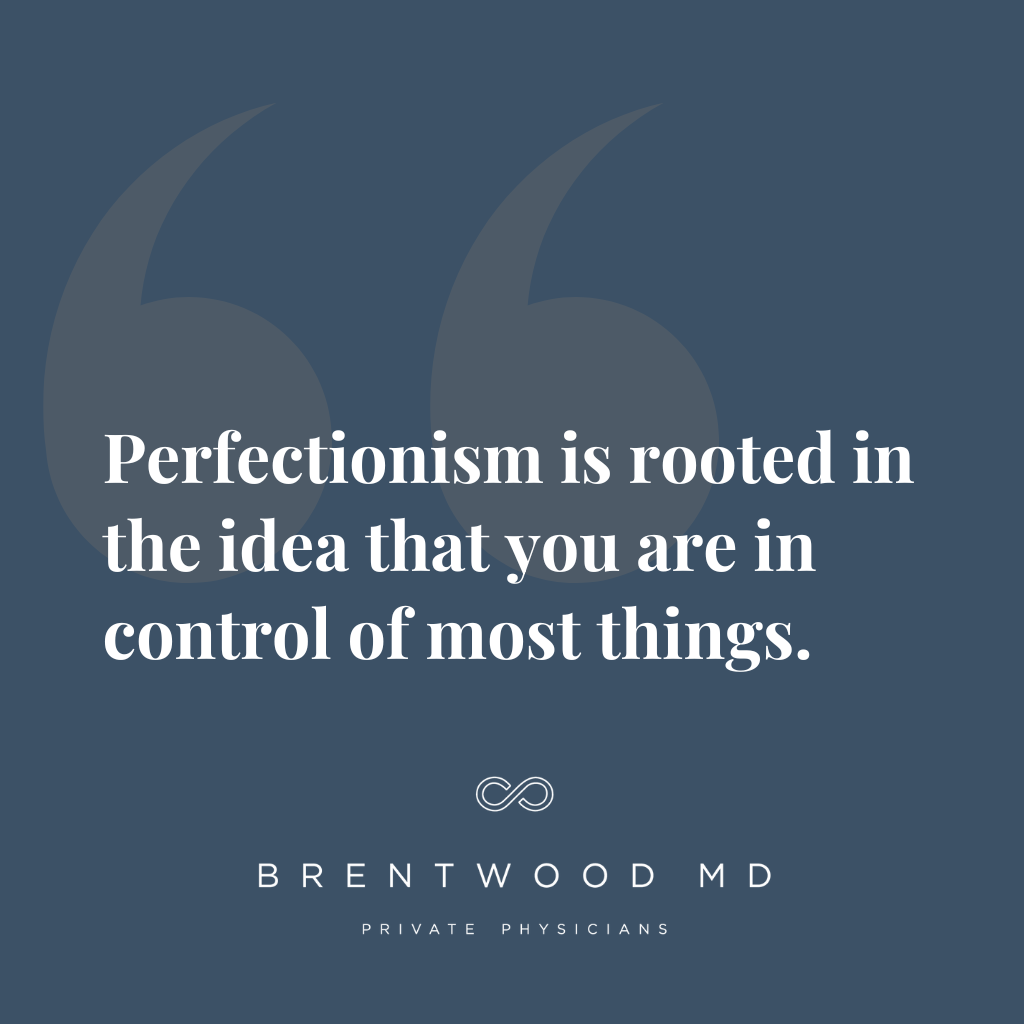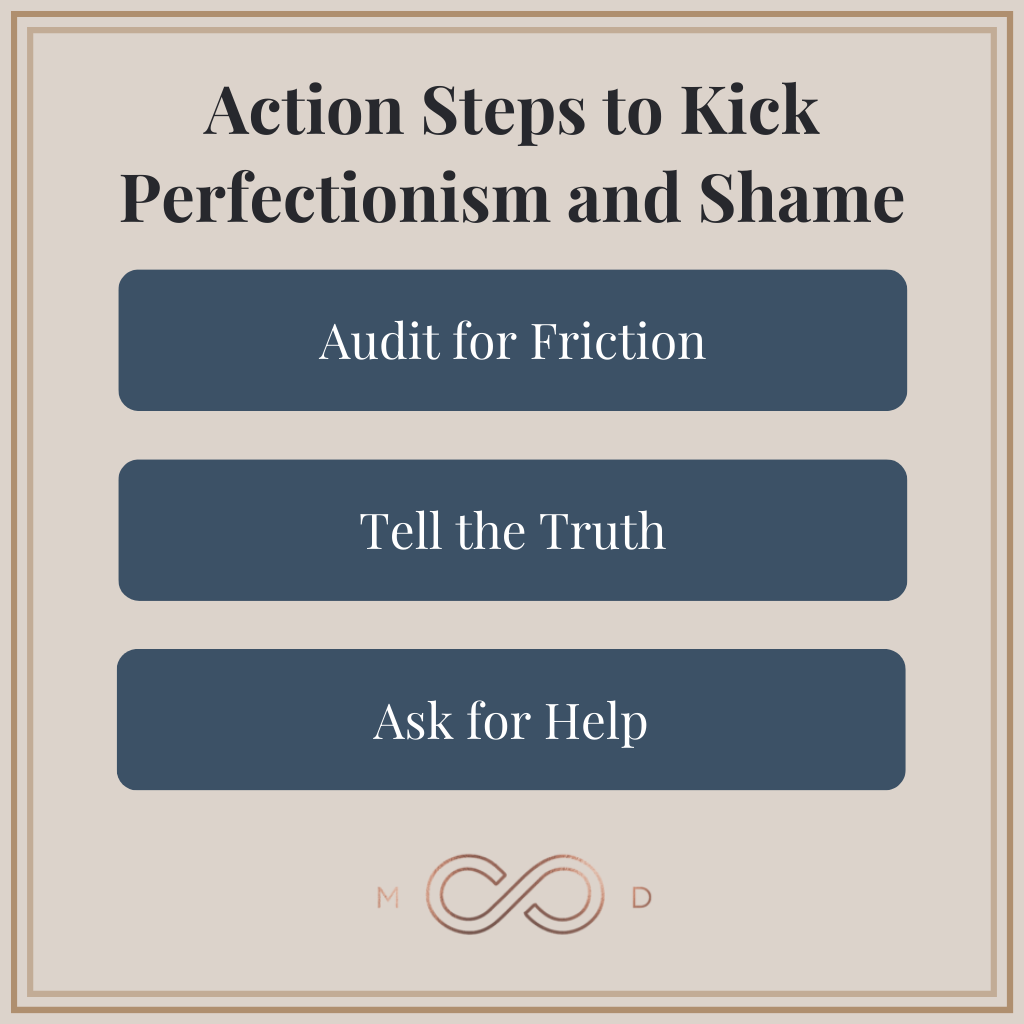Download file | Play in new window | | Recorded on December 23rd, 2024
Society today often bats around phrases like nobody’s perfect and perfect is the enemy of good… but how much do we really believe that?
High-achieving individuals tend to struggle with perfectionism — with striving to achieve an ideal outcome in everything all the time. And what’s wrong with that? Shouldn’t perfection be the standard we aim for?
Though perfection feels like a reasonable and right goal, it simply doesn’t match what we find in reality. At best, perfection is a fantasy. At worst, it’s a delusion. And in either case, when we fail to reach that supreme standard, the result is shame and frustration.
In this post, I want to talk about the connection between perfectionism and shame, how it affects high achievers in particular, and what you can do to free yourself from the cycle.
Perfectionism and Shame: The Roots
Perfectionism is rooted in the idea that you are in control of most things. However, as most people discover as life goes on, you’re actually in control of very little.
You can, of course, plan and strategize and risk-manage, but the threat of outside influence never reaches zero. You can do everything right, and then a distracted driver swerves across the lane and hits you.
We put our lives in the hands of thousands of strangers every day, from driving to walking to eating out. Yet our brains insist, “I’m smart, I’m strategic, I’m thoughtful. As long as I follow the path I’ve determined is best, the ideal outcome will happen.”
Perfection is an illusion, an unattainable mirage, because control is largely an illusion. All you truly control (as my wrestling coach loved to remind us) is your attitude and your effort.
I’m not saying this as a scare tactic or to convince anyone that lofty goals are bad. In fact, having big, hairy, audacious goals is excellent; it gives you a horizon to aim toward. The trouble comes from believing you can and should attain that perfection, resulting in shame and frustration when you inevitably fall short.
Tying your sense of happiness, satisfaction, and purpose to an idealistic outcome in a world where you have little control is a dangerous recipe. It can lead to a life that feels underwhelming and unfulfilling — because you’re always comparing where you are now to where you think you should be.
How to Have Goals Without Shame
As human beings, we certainly need goals to help us make progress in our personal and professional lives. But perfectionism — and shame, its inevitable counterpart — don’t help us reach those goals; instead, they sabotage our progress.
Though this applies in every area of life, let’s take health as an example.
Jen Justus, our very own nurse practitioner, has talked several times on our podcast about her fitness and weight loss journey. For years, she bounced from program to program, searching for a structure she could adhere to perfectly and achieve her ideal outcome.
The problem, however, is that no one adheres to anything perfectly all the time. And the all-or-nothing approach of perfectionism leads to shame and frustration when you inevitably slip up. Jen recalls that a small “cheat” one morning constituted such a breach in perfection that she’d often throw up her hands and treat the whole day — or more — as a loss.
In more recent years, Jen has shifted her perspective. She no longer strives for constant perfection, but for consistent progress. She knows where she’s aiming, but she also realizes no one can catch the horizon. It’s an ideal that remains just out of reach, no matter how much progress you make.
This realization changes everything. For Jen, it freed her from the mental gymnastics of trying to get all her macros, count all her calories, close all her rings, and somehow still have energy left over to be a human being. Consistency, not perfection, became the directive, and she went from measuring forward toward an ever-elusive horizon to measuring backward toward where she started.
Now, the pressure is off. As long as she’s making progress toward the horizon — a horizon of healthy mobility, great cardiovascular health, and low cancer risk — Jen is satisfied. If today’s workout wasn’t that great, shame and frustration no longer derail her. Workouts will vary, but she has become a person who goes to the gym, and she recognizes what a difference that consistency makes.
Get Unstuck: Progress Over Perfection
For high achievers, striving for some form of perfection may have worked out in certain areas of life. But what we’ve found from working with so many driven, successful individuals is that they usually get stuck in at least one or two areas. It could be anything — health, a relationship, something else. Whatever it is, their usual gains elude them, and they don’t know why.
When high achievers get stuck in the pursuit of perfection, shame and frustration quickly follow. Despite all their other successes, the lack of perfection in this one area saps the satisfaction and fulfillment they should enjoy.
If this is your experience, the solution is to break free from the perfectionism-shame cycle. And to do that, you need a perspective shift, like Jen. Remind yourself that you won’t achieve the ideal. You’ll simply use it to inform your actions and decisions each day, making forward progress possible.
Action Steps to Kick Perfectionism and Shame
If you’re unsure whether or where perfectionism might be lurking in your life, I have three practical steps you can take to both find and address it.
- Audit for Friction: Start by reflecting on whether there’s an area (or two) of your life in which joy and satisfaction seem elusive. Is there a pattern of anger, pain, or resentment? Just notice that area without judgment.
- Tell the Truth: All progress begins with telling the truth — especially to ourselves. Have the courage to be honest with yourself about what you observe as you reflect on areas of your life.
- Ask for Help: Perfectionism, shame, and the need for control can act as prisons for those experiencing them. And in most cases, people need outside help to truly break free. Just as you can’t see your own swing — which is why batting coaches exist — you also can’t see your own inner complexities. I’ve come to believe that therapy done well is not only beautiful; it’s also probably mandatory for any human as they age through life.
Final Thoughts on Perfectionism and Shame
Goals are useful compasses that help us make intentional progress on our journeys. Perfectionism is a single-minded captain who shipwrecks his craft on the hidden reef of shame.
I let Future Aaron — my personal ideal for a future me — inform my direction and pursuits today. However, I also understand that I will never meet him. Future Aaron is a horizon I’ll never reach, but one I’ve created in alignment with my goals and values. I’ll never be him, but he’s a useful tool to navigate by.
With a goal-informed — versus a perfection-directed — approach, you no longer delay satisfaction to one mythical day when you achieve the ideal. Every point along the way becomes valuable, and you find fulfillment in both the experiences you have and who you become along the way.

Dr. Aaron Wenzel is a concierge physician specializing in the care of fast-moving entrepreneurs, executives, and public figures in the Nashville, TN area. Dr. Wenzel’s diverse life experience and extensive training in family medicine, emergency care, nutrition, and hormone replacement therapies give him the unique platform to provide unmatched care for his patients.









